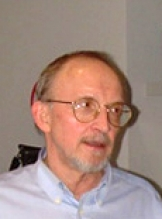
Seminar Leader:
Mark B. AdamsPreface:
Today, in popular books, films, and television shows, science fiction (SF) themes have become part of our common culture and worldview. Indeed, today’s students generally are much more familiar with SF than are their teachers. SF has often served to popularize rather esoteric scientific ideas, but it has sometimes anticipated later scientific developments with remarkable accuracy, and its authors have inspired many generations of young people to take up careers in science. As such, the genre provides rich opportunities for teaching students about reading, writing, and thinking— about science, society, literature, history, and culture.
In this seminar, we explored the emergence of modern SF and tracked its relation to contemporary scientific and historical developments. After exploring the nature and origins of the genre (with sessions on SF, Jules Verne, and H. G. Wells), we took up common SF themes —“Imagining Mars,” “Utopias,” “Superman,” “The Golden Age,” “Aliens,” “Robots,” “Biofutures,” and “Virtual Realities”— and discussed their relationship to contemporary developments in science and society. Preparation for each week consisted of reading a classic SF novel on the week’s theme and seeing a pertinent film. Each session started with an hour- long powerpoint lecture giving background on the week’s theme, followed by an hour’s discussion of the week’s lecture, novel, film, and theme. The course also served as a workshop on using SF in crafting classroom materials and enriching effective teaching.
| Unit Title | Author |
|---|
2008
|
|
|
Myrtle Bastien |
|
Keywords: Civil War, fiction, History, invention, ironclad ships, Monitor and Merrimac, naval warfare, science fiction, secret weapon, submarine |
|
|
|
|
Nancy Baulis |
|
Keywords: aeronautics, air machines, Dirigibles, fantasy, Hindenburg, hot air balloon, Math, Philadelphia Zoo, Science, science fiction, social studies, weather, Wizard of Oz, writing |
|
|
|
|
Wendy J. Hafford |
|
Keywords: Beyond This Horizon, Brave New World, creativity, Critical thinking, Gattaca, genetics, Media, Science, writing |
|
|
|
|
Elizabeth M. Harvey |
|
Keywords: biological sciences, Biology, Blood Child, Brave New World, environment, genetics, governmental structures, I, robot, Science, societal structures, Technology |
|
|
|
|
Christine Lokey |
|
Keywords: broaden vocabulary, literacy and inquiry, oral language, Reading, real world experience, Scientific inquiry, scientific reasoning, writing |
|
|
|
|
Kate Reber |
|
Keywords: American History, Bloodchild, Brave New World, Humanities, interdisciplinary, Math, possible world, Science, Technology, world history |
|
|
|
|
Deborah Samuel |
|
Keywords: Beyond This Horizon, Biology, Brave New World, English, literacy, neuropsychology, technological advances |
|
|
|
|
Steven Shust |
|
Keywords: American History, Cold War, cold war culture, cold war politics, cold war technology, conformity, control, destruction through the lens of science fiction, fear, films, History, novels, science fiction, themes of alientation |
|
|
|
|
Stuart Surrey |
|
Keywords: atomic structure, audiovisual, chemical reactions, Chemistry, energy, English, flow of energy, matter, printed, Science, science fiction |
|
|
|
|
Maxine Tumaian |
|
Keywords: art critique, career, conservation quests, cross-curricular, cryptozoology, film interpretation, Middle School, scientific process, vocabulary builders, Yeti |
|
|
